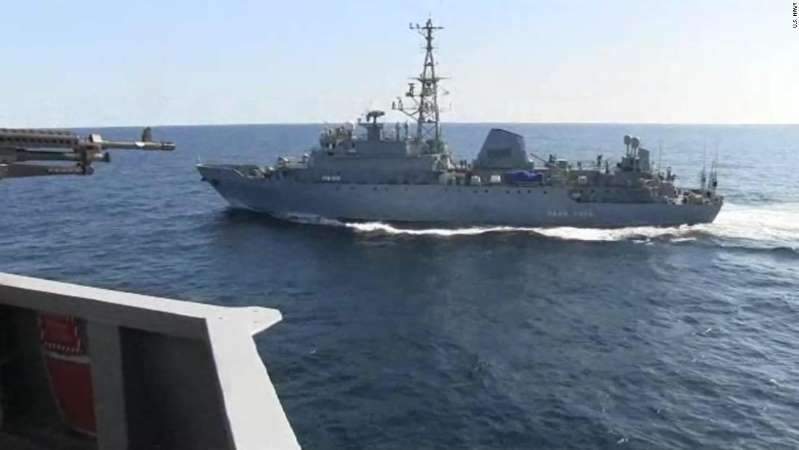First on CNN: Russian warship 'aggressively approached' US destroyer in Arabian Sea

A Russian warship "aggressively approached" a US Navy destroyer while it was operating in the North Arabian Sea Thursday, ignoring warnings from the US vessel and increasing the risk of a collision, the US Navy said Friday.
Video of the incident, which was obtained by CNN, shows the Russian warship rapidly approaching the USS Farragut, coming as close as 180 feet to the US ship before changing course, according to two defense officials.
The incident is the latest example of a close encounter between US and Russian military forces that American officials have described as unsafe and provocative.
It comes roughly seven months after another incident in the Pacific when US and Russian warships came so close the US ship had to perform an emergency maneuver to avoid a collision.
"On Thursday, Jan. 9, while conducting routine operations in the North Arabian Sea, USS Farragut was aggressively approached by a Russian Navy ship," the US Navy's Fifth Fleet, which oversees naval operations in the Middle East, said in a statement.
"Farragut sounded five short blasts, the international maritime signal for danger of a collision, and requested the Russian ship alter course in accordance with international rules of the road. The Russian ship initially refused but ultimately altered course," the statement said, adding "While the Russian ship took action, the initial delay in complying with international rules while it was making an aggressive approach increased the risk of collision."
The Russian vessel ultimately turned away after bridge-to-bridge radio communication was established with the US destroyer.
A US Navy official says that the Farragut is part of the USS Harry S. Truman aircraft carrier group and the Farragut is tasked with intercepting potential enemy ships to prevent them from approaching the aircraft carrier.
Following the June incident, the US Navy accused a Russian warship of acting in an unsafe manner by coming within 100 feet of the USS Chancellorsville, forcing the US ship to perform an emergency maneuver to avoid a collision.
In the video taken from the American ship, the two ships come so close that Russian sailors can be seen appearing to sunbathe on the stern of their vessel.
Photo: © U.S. Navy




